第140章 CHAPTER XX(6)
He did not answer. His hand seemed to her to lie more heavily on her cheek.
"I--I am not sure that you are quite happy with me," she said.
She spoke like one who reverenced truth, even though it slew her.
There was a note of agony in her voice.
"Hush!" he said. "Hush, Domini!"
They were both silent. Beyond the canvas of the tent that shut out from them the camp they heard a sound of music. Drums were being beaten. The African pipe was wailing. Then the voice of Ali rose in the song of the "Freed Negroes":
"No one but God and I
Knows what is in my heart."
At that moment Domini felt that the words were true--horribly true.
"Boris," she said. "Do you hear?"
"Hush, Domini."
"I think there is something in your heart that sometimes makes you sad even with me. I think perhaps I partly guess what it is."
He took his hand away from her face, his arm from her shoulder, but she caught hold of him, and her arm was strong like a man's.
"Boris, you are with me, you are close to me, but do you sometimes feel far away from God?"
He did not answer.
"I don't know; I oughtn't to ask, perhaps. I don't ask--no, I don't.
But, if it's that, don't be too sad. It may all come right--here in the desert. For the desert is the Garden of Allah. And, Boris--put out the light."
He extinguished the candle with his hand.
"You feel, perhaps, that you can't pray honestly now, but some day you may be able to. You will be able to. I know it. Before I knew I loved you I saw you--praying in the desert."
"I!" he whispered. "You saw me praying in the desert!"
It seemed to her that he was afraid. She pressed him more closely with her arms.
"It was that night in the dancing-house. I seemed to see a crowd of people to whom the desert had given gifts, and to you it had given the gift of prayer. I saw you far out in the desert praying."
She heard his hard breathing, felt it against her cheek.
"If--if it is that, Boris, don't despair. It may come. Keep the crucifix. I am sure you have it. And I always pray for you."
They sat for a long while in the dark, but they did not speak again that night.
Domini did not sleep, and very early in the morning, just as dawn was beginning, she stole out of the tent, shutting down the canvas flap behind her.
It was cold outside--cold almost as in a northern winter. The wind of the morning, that blew to her across the wavelike dunes and the white plains, seemed impregnated with ice. The sky was a pallid grey. The camp was sleeping. What had been a fire, all red and gold and leaping beauty, was now a circle of ashes, grey as the sky. She stood on the edge of the hill and looked towards the tower.
As she did so, from the house behind it came a string of mules, picking their way among the stones over the hard earth. De Trevignac and his men were already departing from Mogar.
They came towards her slowly. They had to pass her to reach the track by which they were going on to the north and civilisation. She stood to see them pass.
When they were quite near De Trevignac, who was riding, with his head bent down on his chest, muffled in a heavy cloak, looked up and saw her. She nodded to him. He sat up and saluted. For a moment she thought that he was going on without stopping to speak to her. She saw that he hesitated what to do. Then he pulled up his mule and prepared to get off.
"No, don't, Monsieur," she said.
She held out her hand.
"Good-bye," she added.
He took her hand, then signed to his men to ride on. When they had passed, saluting her, he let her hand go. He had not spoken a word.
His face, burned scarlet by the sun, had a look of exhaustion on it, but also another look--of horror, she thought, as if in his soul he was recoiling from her. His inflamed blue eyes watched her, as if in a search that was intense. She stood beside the mule in amazement. She could hardly believe that this was the man who had thanked her, with tears in his eyes, for her hospitality the night before. "Good-bye," he said, speaking at last, coldly. She saw him glance at the tent from which she had come. The horror in his face surely deepened. "Goodbye, Madame," he repeated. "Thank you for your hospitality." He pulled up the rein to ride on. The mule moved a step or two. Then suddenly he checked it and turned in the saddle. "Madame!" he said. "Madame!"
She came up to him. It seemed to her that he was going to say something of tremendous importance to her. His lips, blistered by the sun, opened to speak. But he only looked again towards the tent in which Androvsky was still sleeping, then at her.
A long moment passed.
Then De Trevignac, as if moved by an irresistable impulse, leaned from the saddle and made over Domini the sign of the cross. His hand dropped down against the mule's side, and without another word, or look, he rode away to the north, following his men.